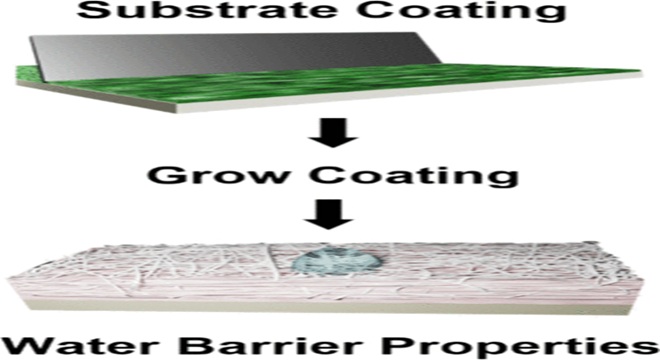.jpg)
Scientists Develop Fungal-Based Waterproofing For Sustainable Fabrics
A team of researchers has developed an innovative technique that uses naturally occurring fungi to make fabrics water-resistant, offering a potential alternative to harmful chemical coatings traditionally used in the textile industry. The breakthrough could significantly reduce the sector’s environmental footprint while enhancing fabric performance.
Scientists at Utrecht University in the Netherlands have
identified a strain of Aspergillus Niger, a common fungus that produces
melanin-rich compounds capable of forming a thin, hydrophobic layer when
applied to cotton and other natural fibres. The fungal coating effectively
repels water without compromising breathability or softness. Textile
waterproofing currently relies on synthetic fluorocarbons and other persistent
chemicals that are known to accumulate in ecosystems and pose long-term health
risks. The new bio-based approach provides a sustainable and biodegradable
substitute, aligning with global efforts to reduce dependence on
petrochemical-derived finishes.
The research team cultivated the fungus in a nutrient
medium and extracted the pigment responsible for the waterproofing effect. Once
applied to the fabric surface, the fungal melanin bonded strongly to the
fibres, creating a durable coating that maintained water repellence even after
multiple wash cycles. Preliminary testing indicates that the treated fabrics
demonstrated a contact angle exceeding 120 degrees, a benchmark comparable to
conventional water-repellent textiles. Further optimisation is underway to
improve scalability and cost efficiency before industrial adoption.
Global demand for functional and eco-friendly textiles
is rising sharply. The sustainable textile market is projected to exceed US$110
billion by 2030, growing at over 8% annually. Innovations such as fungal
waterproofing could accelerate the shift toward green manufacturing practices,
particularly among European and Asian fabric producers facing stricter
environmental regulations. If commercialised, this nature-inspired coating
could redefine how performance textiles are produced, helping the industry balance
innovation, durability, and ecological responsibility.

The fungal coating effectively repels water without compromising breathability or softness. Textile waterproofing currently relies on synthetic fluorocarbons and other persistent chemicals that are known to accumulate in ecosystems and pose long-term health risks. The new bio-based approach provides a sustainable and biodegradable substitute, aligning with global efforts to reduce dependence on petrochemical-derived finishes.
If you wish to Subscribe to Textile Excellence Print Edition, kindly fill in the below form and we shall get back to you with details.








